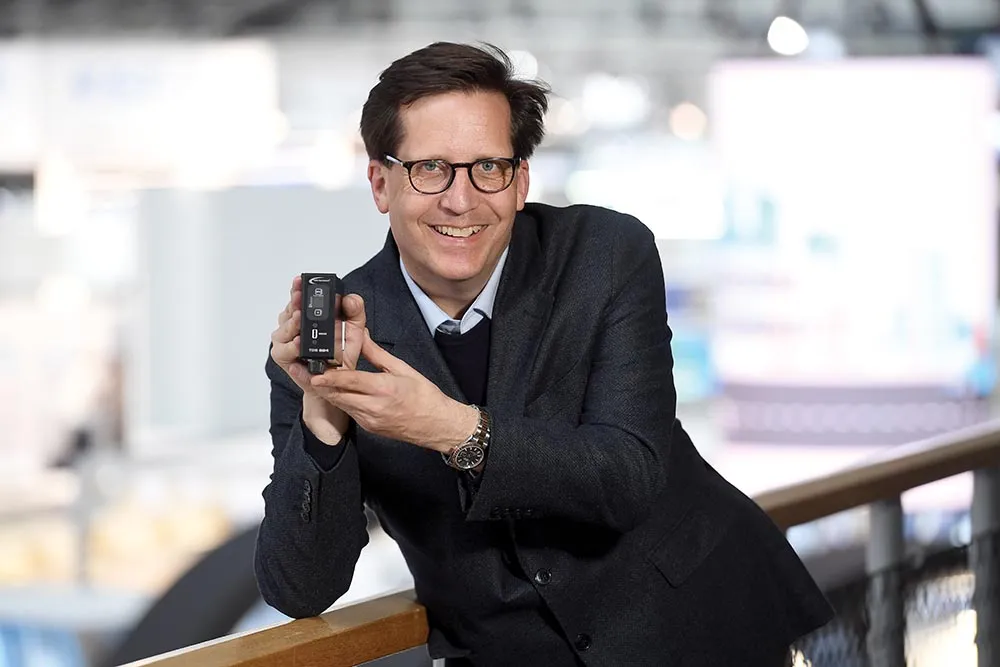Kapsch CarrierCom, in partnership with Sierra Wireless, has launched two improved railway cab radios. The RC900 voice and data cab radio and the RD900 data radio are equipped with the latest Sierra Wireless HPRM1radio modules called, which ensure additional robustness against unwanted radio interference and blocking.
A stable radio connection is an essential requirement for the railway system. Due to the growing networks of public operators, more and more interference is affecting the communication withi
September 18, 2014
Read time: 2 mins
RSS81 Kapsch CarrierCom, in partnership with 7884 Sierra Wireless, has launched two improved railway cab radios. The RC900 voice and data cab radio and the RD900 data radio are equipped with the latest Sierra Wireless HPRM1radio modules called, which ensure additional robustness against unwanted radio interference and blocking.
A stable radio connection is an essential requirement for the railway system. Due to the growing networks of public operators, more and more interference is affecting the communication within GSM-R networks (GSM for railways). This can result in a loss of radio communications, denial of ETCS (European Train Control System) services and dropped Railway Emergency Calls (REC). The Sierra Wireless HPRM1 radio modules used in the new Kapsch cab radios have improved receiver parameters which are compliant with the latest versions of ETSI (6613 European Telecommunications Standards Institute) specifications.
“The increase of unwanted interference in the GSM-R band is becoming a major challenge for the operation of railway communication systems. Until now we have solved these problems with external filters. Thanks to the new Sierra Wireless technology we now can offer cab radios to our customers with built-in filter technology that solves the majority of interference resulting from public 3G and 4G networks, and this without any external filter,” explains Thomas Schöpf, COO of Kapsch CarrierCom.
“As network operators shift capacity towards 3G and 4G networks, reliable radio filtering technology on GSM-R products has become a critical factor in minimising interference and ensuring uninterrupted connectivity,” said Charles Derivaux, vice-president, Sierra Wireless. “This technology has been incorporated into our newest GSM-R products, and the HPRM1 has been ranked number one in benchmark and performance tests by third-party organisations in the railway industry.”
A stable radio connection is an essential requirement for the railway system. Due to the growing networks of public operators, more and more interference is affecting the communication within GSM-R networks (GSM for railways). This can result in a loss of radio communications, denial of ETCS (European Train Control System) services and dropped Railway Emergency Calls (REC). The Sierra Wireless HPRM1 radio modules used in the new Kapsch cab radios have improved receiver parameters which are compliant with the latest versions of ETSI (
“The increase of unwanted interference in the GSM-R band is becoming a major challenge for the operation of railway communication systems. Until now we have solved these problems with external filters. Thanks to the new Sierra Wireless technology we now can offer cab radios to our customers with built-in filter technology that solves the majority of interference resulting from public 3G and 4G networks, and this without any external filter,” explains Thomas Schöpf, COO of Kapsch CarrierCom.
“As network operators shift capacity towards 3G and 4G networks, reliable radio filtering technology on GSM-R products has become a critical factor in minimising interference and ensuring uninterrupted connectivity,” said Charles Derivaux, vice-president, Sierra Wireless. “This technology has been incorporated into our newest GSM-R products, and the HPRM1 has been ranked number one in benchmark and performance tests by third-party organisations in the railway industry.”









